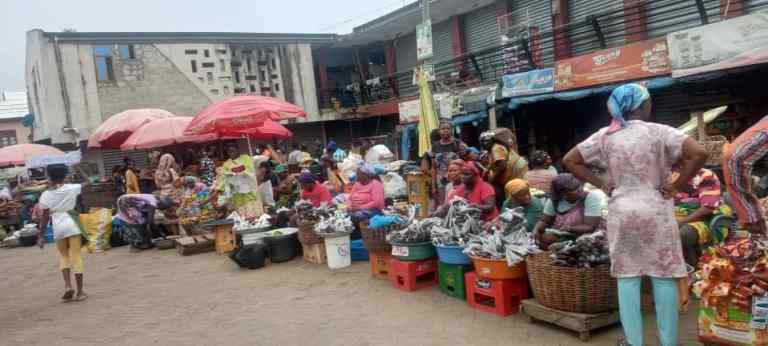
Traders at Kumasi’s Bantama market have declined to take part in the National Sanitation Day cleanup effort, demonstrating a worrying lack of concern for environmental cleanliness.
Despite the Kumasi Metropolitan Assembly’s efforts to promote a cleaner and healthier environment, these traders seem to be undermining the initiative.
The National Sanitation Day is observed on the first Saturday of every month, with the aim of promoting public health and environmental cleanliness across the country.
The initiative, launched by the government, seeks to instill a sense of responsibility among citizens to maintain clean environments.
The Kumasi Metropolitan Assembly led by Hon Richard Ofori Agyeman Boadi, has been at the forefront of enforcing this initiative, with Officers deployed to monitor compliance.
Failure to comply with the National Sanitation Day directive constitutes an offense punishable by a fine of up to one hundred penalty units or imprisonment of not less than thirty days and not more than six months, or both.
Continuous offenses attract additional daily penalties.
The Kumasi Metropolitan Assembly has urged residents, traders, and shop owners to strictly observe the temporary closure and actively participate in the exercise to avoid these sanctions.
The behavior of the Bantama traders highlights the need for increased awareness and education on the importance of environmental cleanliness.
Today whereas city authorities were busily cleaning the market, traders were also busily selling without paying attention to the exercise.
The move by city authorities in making the city clean also underscores the importance of community participation in maintaining a clean and healthy environment.
The government and city authorities must work together to address the sanitation challenges facing the country, focusing on individual and community engagement.
To achieve a cleaner and healthier environment, it is essential to adopt a bottom-up approach that encourages community participation and ownership.
Recognizing and rewarding individuals and communities that demonstrate good sanitation practices can be an effective way to promote positive change.
Additionally, incorporating sanitation education into school curricula can help inculcate good habits in children, ensuring a cleaner future for Ghana .
“Sanitation consciousness cannot be raised through top-down edicts that ignore the existential realities of people living in their local communities.”
Hon Richard Ofori Agyeman Boadi emphasized the need for new approaches that focus on education, communication, awareness creation, and partnership building to promote sanitation consciousness .